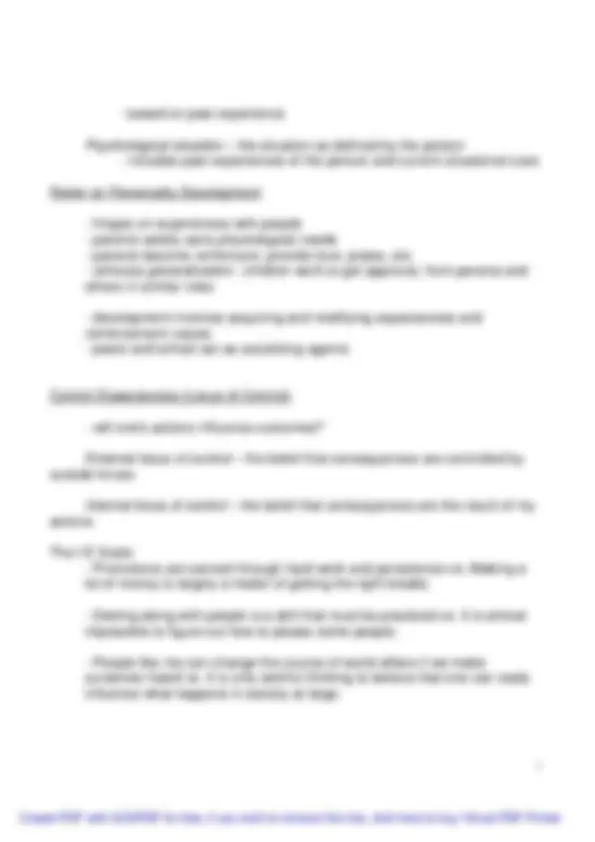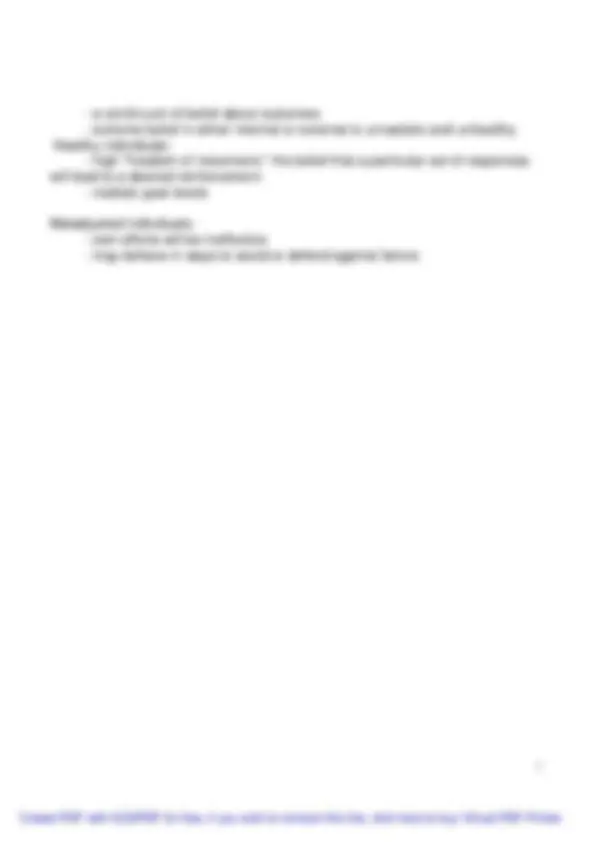




Study with the several resources on Docsity

Earn points by helping other students or get them with a premium plan


Prepare for your exams
Study with the several resources on Docsity

Earn points to download
Earn points by helping other students or get them with a premium plan
Community
Ask the community for help and clear up your study doubts
Discover the best universities in your country according to Docsity users
Free resources
Download our free guides on studying techniques, anxiety management strategies, and thesis advice from Docsity tutors
A brief study guide for Limitations of Behaviorism and Elaborating on Conditioning .
Typology: Study notes
1 / 4

This page cannot be seen from the preview
Don't miss anything!



1
Social Learning Theories
Limitations of Behaviorism:
Dollard & Miller – attempted to blend Freud's psychodynamic theory with behaviorist learning theory
Habits – learned associations between a stimulus and a response
Primary drives – associated with physiological processes Secondary drives - "elaborations" on the primary drives
Primary reinforcers – reduce primary drives Secondary reinforcers – originally neutral
Habit hierarchy ( Hierarchy of Response ) – list of possible responses within a given situation
The Learning process Drive – stimulus impelling a person to act
Cue – specific stimulus
2
Response – one's reaction to the cue
Reinforcement – the effect of the response
Elaborating on Conditioning
Expectancies – thoughts about the possible outcome of a behavior
Rotter "…the potential for a behavior to occur in any specific situation is a function of the expectancy that the behavior will lead to a particular reinforcement in that situation and the value of the reinforcement" (1975, p. 57) Behavior potential – the probability that a behavior will occur in a situation
Expectancy – a belief about an object or event
Reinforcement Value – "the degree of preference for…[a] reinforcement to occur"
4
Maladjusted individuals: